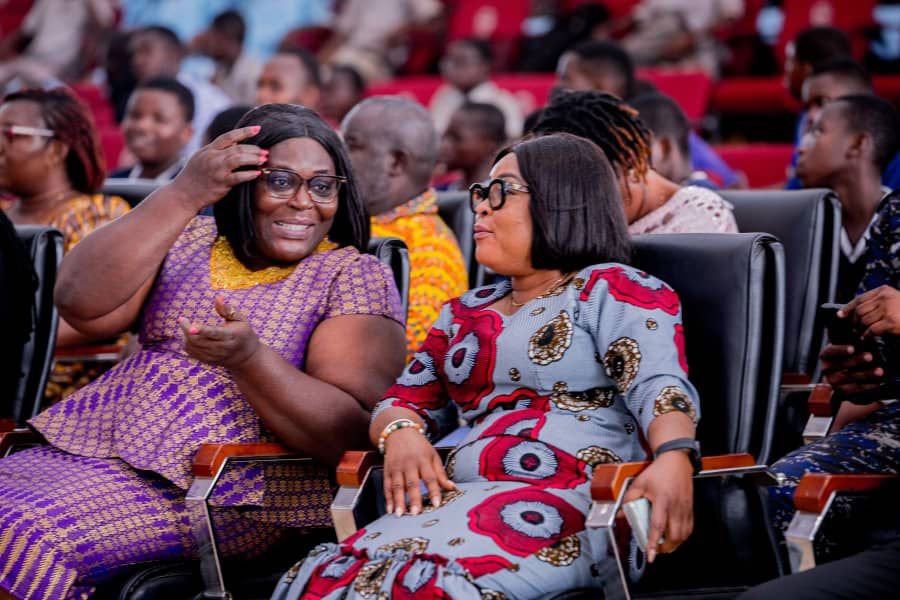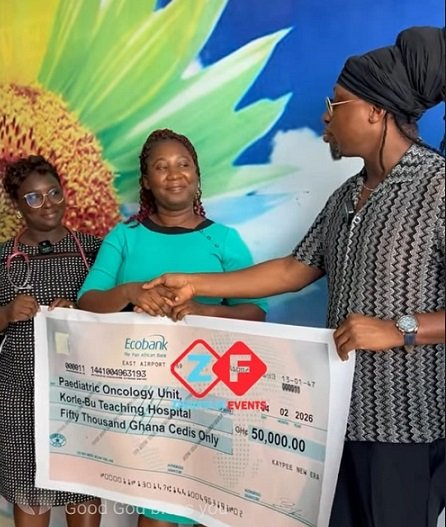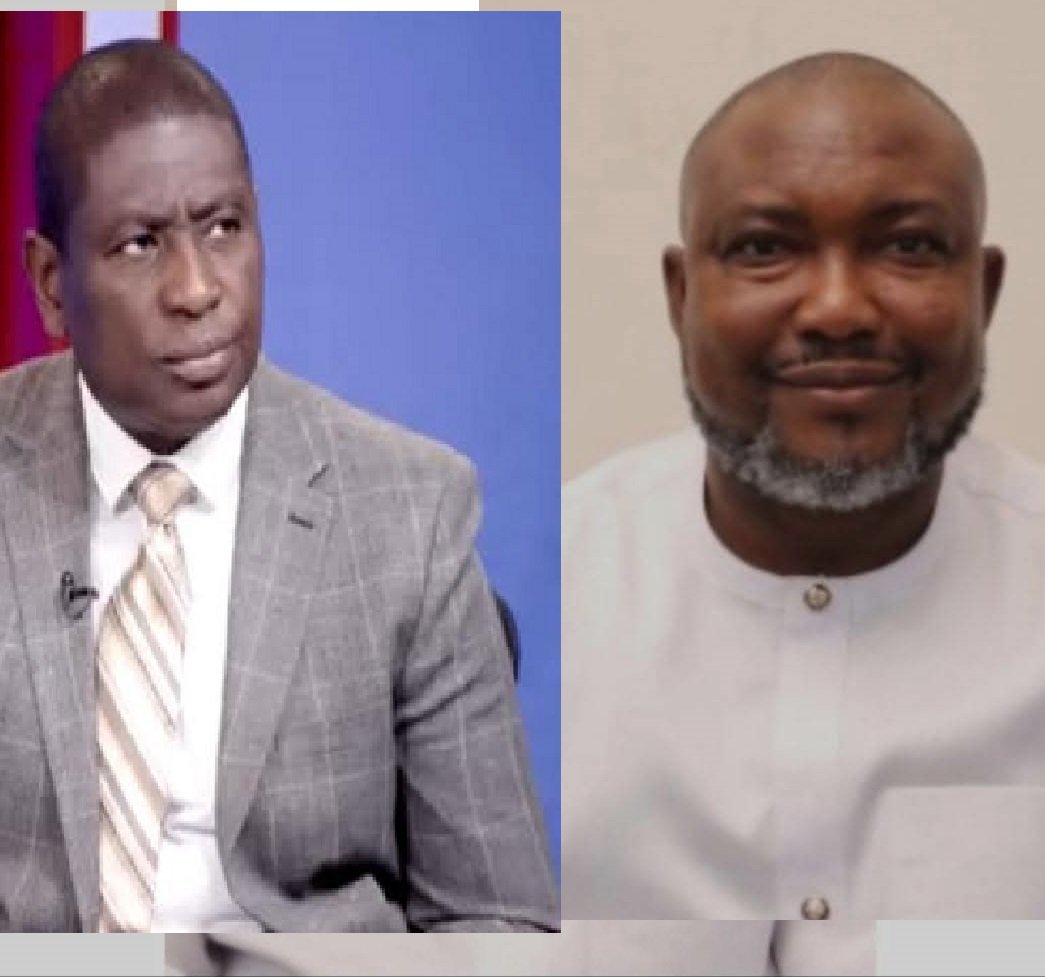News
‘Establish guidance, counselling centres for school children’

A board Member of the Boy Child Supportive Care Foundation (BCSCF), Reverend Father Hector Quartey, has urged government and agencies responsible for education to establish a dedicated department for guidance and counseling in schools.
According to him, this department would provide a safe and confidential space for students to share their concerns and challenges with trained professionals instead of confiding in teachers who were not trained in that field.
Rev. Fr Quartey made the call at an outreach session with some Basic and Junior High School boys in the Dome-Kwabenya Constituency to commemorate the International Day of the Boy Child.
It was organised by the BCSCF on the theme; “Boys and Their Mental Well-Being, their Needs to Feel Happy, Healthy and Valued within Family and Community.”
International Day of the Boy Child is a day celebrated annually on May 16, to recognise the importance of boys’ wellbeing and some challenges they face.
“By creating such a system, the foundation believes that schools can better support students, including both boys and girls, and help them overcome their challenges,” the Board Member noted.
Additionally, he asserted that creating such a department would allow students to feel more comfortable discussing sensitive issues with professionals who were not their teachers, allowing for more open and honest communication, that would enable schools to identify and address issues earlier and provide targeted support to students who needed it most.
Rev. Quartey stated that statistics show that boys were more likely to struggle with drug addiction and other issues due to societal expectations and upbringing, adding that to combat this, the organisation provides support and guidance to help boys develop positive values and wayward behaviours.
“The foundation’s ultimate goal is to promote positive masculinity and empower young males to become responsible and caring individuals who contribute to the well-being of their communities, by working together with schools and government agencies,” he said.
The Founder and Chief Execu¬tive Officer of BCSCF, Ms Edna Korama Yamoah, said the outreach that brought together over 1,000 boys focused on the mental health and well-being of a boy child.
This, she said aimed to raise awareness about the challenges boys face, including depression and mental health issues, drug addiction among others.
She emphasised the need for more support and understanding for boys, who were often perceived as being more resilient than girls.
“Boys are more vulnerable than girls in many ways, so its important government dedicate the day to celebrating the boy child and provide support for organisations working to promote their well-being,” she highlighted.
By Cecilia Yada Lagba
Entertainment
Kwaisey Pee honours promise, donates GHC50,000 to Korle-Bu Paediatric Oncology Unit

Ghanaian music icon, Akwasi Poku Addae, known in Showbiz circles as Kwaisey Pee has honoured his promise to children suffering from cancer.
Ahead of his 25th anniversary event held at the D’ Icon Event Centre at East Legon last year, he made a promise to donate some funds to children suffering from cancer.
True to his word, the musician has recently made a donation of GHC50,000 to the Paediatric Oncology Unit of the Korle-Bu Teaching Hospital.
He told the Ghanaian Times that children are so dear to him, and was optimistic the support would go a long way too impact lives.
The music dynamo also promised that the gesture will not be the last,” it will be a continuous feature from me.”
He also called on Ghanaians home and abroad to lend a helping hand to children suffering from cancer.
According to him, children with cancer have many needs, and a helping hands will go a long way ease the suffering.
“Cancer treatment is very expensive, and leaving that to parents of the children alone, will be a huge burden, with support from you and myself, we can make some changes in other people’s lives,” he concluded.
By Edem Mensah-Tsotorme
News
Dickson Kyere Duah, Kwadwo Poku clash over government funding for World Cup participation

A disagreement has emerged between Member of Parliament for Berekum West, Dickson Kyere-Duah, and energy consultant Kwadwo Poku over government funding for Ghana’s participation in the 2026 FIFA World Cup.
The debate centred on government’s decision to budget about 13 million dollars to support the national team, even though FIFA is expected to provide an appearance fee of about 10.5 million dollars if Ghana qualifies for the tournament.
During the discussion on Joys news , Mr Poku questioned why the government should allocate such an amount when FIFA already provides funds to participating countries.
According to him, the appearance fee alone should help cover some of the country’s expenses.
He argued that if FIFA is giving Ghana 10.5 million dollars simply for qualifying for the tournament, it raises questions about the need for the government to appropriate additional funds.
Mr Kyere Duah, however, explained that the government’s allocation was part of advance planning captured in the national budget even before the final qualification results were known.
He noted that the budget for the tournament period was prepared in November 2025, when it was not certain that Ghana would qualify.
He stressed that budgeting does not automatically mean the entire amount will be spent.
According to him, the funds are meant to prepare the team from the start of the competition period until the end of the tournament.
Mr Kyere Duah explained that if the team exits the tournament early, the full amount allocated in the budget will not be used.
Mr Poku maintained that FIFA already provides financial support to teams for participating in the World Cup and insisted that the government must clearly justify additional spending.
The discussion extended to the role of the Ghana Football Association in managing the national teams.
Mr Poku described the association as a private institution and argued that FIFA also operates as a private body that does not allow government interference.
He explained that FIFA provides funds to teams to support their preparation and participation in the tournament.
Mr Kyere Duah, however, maintained that national teams represent the country and require government support to operate effectively.
By: Jacob Aggrey














